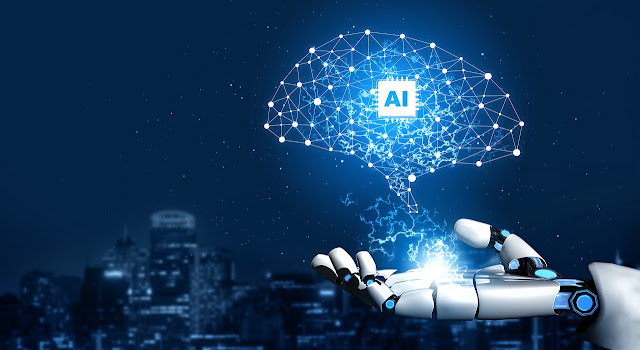Are you looking to take your business to the next level? Are you tired of relying on traditional methods and looking for something new? Artificial Intelligence (AI) and Machine Learning (ML) might be just what you need. In this article, we will explore how AI and ML can be utilized in business to improve efficiency and drive growth.
The Benefits of AI and ML in Business:-
Before we dive into how AI and ML can be used in business, let's first define these terms. AI is the simulation of human intelligence in machines that are programmed to think and act like humans. ML is a subset of AI that allows machines to learn from data and improve their performance over time.
 |
There are several benefits of using AI and ML in business, including:
1. Improved Efficiency
AI and ML can automate routine tasks, freeing up employees to focus on more complex tasks. This can lead to increased efficiency and productivity.
2. Better Decision Making
AI and ML can analyze large amounts of data and provide insights that humans may miss. This can lead to better decision making and improved business outcomes.
3. Personalization
AI and ML can be used to personalize marketing and customer experiences. This can lead to increased customer satisfaction and loyalty.
4. Cost Savings
AI and ML can help businesses save money by automating tasks and reducing the need for manual labor.
How AI and ML can be used in Business:-
Now that we've covered the benefits of AI and ML in business let's explore some specific use cases.
1. Customer Service
AI-powered chatbots can provide 24/7 customer service, answering frequently asked questions, and resolving common issues. This can lead to increased customer satisfaction and lower costs for businesses.
2. Predictive Analytics
ML algorithms can be used to analyze data and predict future trends. This can help businesses make better decisions and stay ahead of the competition.
3. Fraud Detection
AI can be used to detect fraud in real-time, preventing financial losses for businesses.
4. Supply Chain Management
ML can be used to optimize supply chain management, predicting demand and optimizing inventory levels.
5. Marketing
AI and ML can be used to personalize marketing efforts, analyzing customer data to deliver targeted messages and recommendations.
Challenges of Using AI and ML in Business:-
While there are many benefits to using AI and ML in business, there are also challenges to be aware of. These include:
1. Data Quality
AI and ML rely on high-quality data to function properly. If the data is inaccurate or incomplete, the results may be unreliable.
2. Privacy and Security
AI and ML require access to sensitive data, which can be a security risk if not properly secured. Businesses must take steps to protect customer data and comply with privacy regulations.
3. Implementation Cost
Implementing AI and ML can be expensive, requiring specialized talent and infrastructure.
 |
How to Implement AI and ML in Business:-
Now that we've covered how AI and ML can be used in business and the challenges to be aware of, let's explore how to implement these technologies in your business.
1. Define Your Goals
Before implementing AI and ML in your business, you need to define your goals. What problems are you trying to solve? What outcomes are you trying to achieve?
2. Identify Opportunities
Once you've defined your goals, you need to identify opportunities for AI and ML. Where can these technologies be used to improve efficiency or drive growth in your business?
3. Develop a Plan
Once you've identified opportunities, you need to develop a plan for implementing AI and ML. This includes identifying the resources you'll need, such as talent and technology, and creating a timeline for implementation.
4. Start Small
Implementing AI and ML can be complex and expensive. It's important to start small and focus on quick wins. This will help you build momentum and justify further investment.
5. Monitor and Evaluate
Once you've implemented AI and ML, it's important to monitor and evaluate the results. Are you achieving your goals? Are there areas for improvement? Use this information to refine your approach and make data-driven decisions.
Conclusion:-
In conclusion, AI and ML have the potential to revolutionize the way businesses operate. By automating routine tasks, improving decision making, and personalizing customer experiences, businesses can improve efficiency and drive growth. However, it's important to be aware of the challenges and risks associated with implementing AI and ML. With careful planning and execution, businesses can leverage these technologies to gain a competitive advantage in the marketplace.



0 Comments